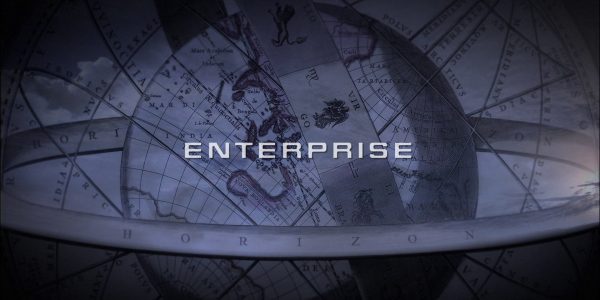 Enterprise had a great theme song. Unfortunately, that was about all the show had going for it. Now, Scott Bakula is one of my favorite actors (his recent work on the underrated HBO series Looking was some of the best of his career), but even his considerable acting chops couldn't turn this dud into a winner. The issues with Enterprise were two fold. First, the characters just weren't interesting. Having a Vulcan first officer at that time in the Federation's growth was a great move. However, T'Pol was saddled with little to do, an actress who couldn't make the character work, and, ultimately, an ill-conceived romance with Tripp that made absolutely zero sense beyond a desire to see two attractive people in scenes together. The rest of the cast didn't fare much better, and, even a scant eleven years following the series finale, I can barely recall the characters on the show.
The other glaring problem with the series was that the adventures just weren't all that fun. Star Trek is many things, but the sense of fun and interesting adventure is paramount to a series about exploring the reaches of the galaxy. That doesn't mean that there can't be drama or complex story arcs (in fact, I love a good story arc, as I will touch on later), but I didn't get the sense that the characters really enjoyed their jobs on the ship. Now, that certainly harkens back my problem with the characters, but if the audience can't get on board with the adventure and drama within an episode because the characters aren't particularly engaged, that's a problem.
4. Star Trek: Voyager
Enterprise had a great theme song. Unfortunately, that was about all the show had going for it. Now, Scott Bakula is one of my favorite actors (his recent work on the underrated HBO series Looking was some of the best of his career), but even his considerable acting chops couldn't turn this dud into a winner. The issues with Enterprise were two fold. First, the characters just weren't interesting. Having a Vulcan first officer at that time in the Federation's growth was a great move. However, T'Pol was saddled with little to do, an actress who couldn't make the character work, and, ultimately, an ill-conceived romance with Tripp that made absolutely zero sense beyond a desire to see two attractive people in scenes together. The rest of the cast didn't fare much better, and, even a scant eleven years following the series finale, I can barely recall the characters on the show.
The other glaring problem with the series was that the adventures just weren't all that fun. Star Trek is many things, but the sense of fun and interesting adventure is paramount to a series about exploring the reaches of the galaxy. That doesn't mean that there can't be drama or complex story arcs (in fact, I love a good story arc, as I will touch on later), but I didn't get the sense that the characters really enjoyed their jobs on the ship. Now, that certainly harkens back my problem with the characters, but if the audience can't get on board with the adventure and drama within an episode because the characters aren't particularly engaged, that's a problem.
4. Star Trek: Voyager
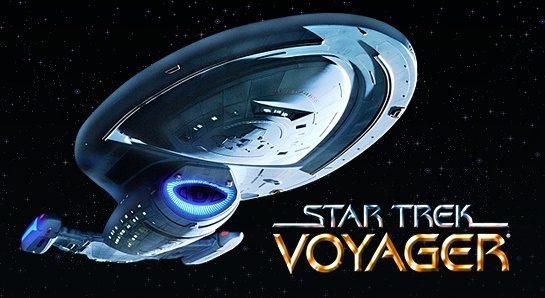
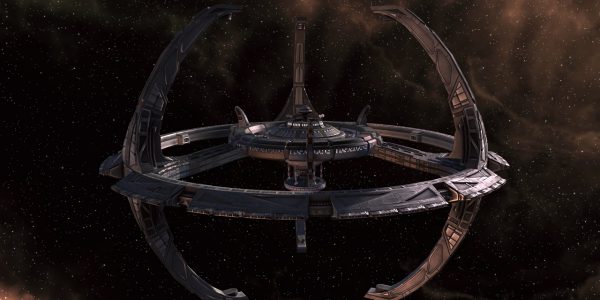
There were a number of characters that, when explored outside the guise of war, just didn't work all that well. Sure, Jadzia Dax was occasionally fun, and there were a few episodes that explored the complex nature of being a joined Trill, but man, was she a poorly drawn character (and let's not get started on Ezri). Sisko was a strong leader, but he remained a cypher throughout the run of the series- definitely not someone to inspire troops beyond the occasional speech. Two of the show's three best characters were imports from Next Generation (Worf, who revitalized the series when he joined the cast, and O'Brien). The third, the compelling Cardassian spy Garek, was underused throughout most of the series, although he did have some spectacular moments during the war. It can be difficult to balance a cast this size and allow for equal screen time and arcs, but this was, by far, the most rich and diverse cast of characters on a Star Trek series. There were so many toys to play with, so many species to work with, and such a deep roster of acting talent. It was a shame that the spectacular writing staff (which included Moore, Ira Steven Behr, and René Echevarria) weren't allowed more freedom from the start to explore the characters and their relationships in more depth.
2. Star Trek: The Original Series
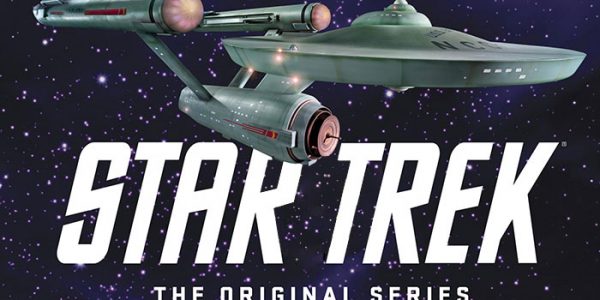
Now, there is a case to be made to make Star Trek: The Original Series number one on this list simply because it was the source from which all the additional series sprung. Or, because it was the catalyst for changing the face of scifi on television. But I've put it at the second spot on the list because, while it created iconic characters and some ripping yarns, The Original Series is lacking that special something that made Next Generation work on a different level.
The characters on TOS might be iconic, but aside from Kirk and Spock, they were all archetypal characters that didn't grow or change throughout the series (the characters were much more complex and multi-dimensional in their film incarnations). What made TOS work wasn't the weekly adventures, the interesting aliens of the week, or the various exclamations of Bones. It was the relationship between Kirk and Spock. The friendship and respect that developed between to very different men was what grounded the show. You can throw all the bells and whistles in the world at a show, but if the characters don't resonate and the audience can't see the bond between them, the show is doomed to fail. TOS might not have been a runaway success in its initial run, but the relationship between Kirk and Spock became the bedrock on which the ensuing films (including the modern reboot) have been built. When Gene Roddenberry drew up those two characters, he broke the mold. Episodes that utilized that friendship were some of the best the show had to offer ("The City on the Edge of Forever," arguably the best Trek episode of them all, uses the Spock-Kirk friendship, with a dash of McCoy for good measure, to great aplomb).
While TOS regularly made excellent use of Kirk and Spock, the rest of the cast often were given short shrift. Uhura, while a groundbreaking depiction of an AfricanAmerican woman on television, never really grew beyond her role within the ship hierarchy. The same could be said for Scotty, Sulu, and Chekov. And while McCoy was given more to do than the rest, the character spent more time gruffly declaring himself to be a doctor in Sickbay than developing as a character.
1. Star Trek: The Next Generation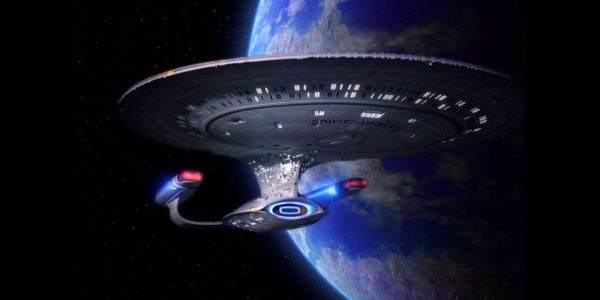 Is Star Trek: The Next Generation the perfect Star Trek series? Nope. But over its seven seasons, Next Generation was the series that best exemplified all that is great about Star Trek. While the characters might not have been the most complex on television, each had a clear course of development over the seasons (even Wesley Crusher, who was definitely the worst).
And a lot of what made Next Generation truly great comes down to its captain. I would follow Jean-Luc Picard into battle any day of the week. More cerebral than Kirk, but no slouch when it came to drawing up battle plans, Picard is the greatest Star Trek captain. And while a lot of the credit for Picard goes to Sir Patrick Stewart's work in the role, the show's writers managed to craft a character who didn't always have all the answers, yet still inspired a deep trust and loyalty from both the crew and the audience.
Picard made mistakes- sometimes horrific mistakes- but he learned from them and grew as a result. While Riker never reached the heights of Spock as a first officer, the series created a number of rich supporting characters that added great depth to the show. From Worf (who would anchor DS9 in later years) to the amazingly complex Data (a performance from Brent Spiner that would almost certainly gain awards recognition if the show aired today) to the excellent work from Whoopi Goldberg in her smaller role as Guinan (a character I wish we had more time with), there were a number of characters who could successfully carry an individual episode or arc- something that wasn't present in any of the other Trek series.
Next Generation was also responsible for introducing some of Star Trek's best villains into the fold, most notably the Borg (and, as a result, coming up with one of the best cliffhangers in television history: "Mr. Worf, fire."). The series also was responsible for the creation of the always entertaining Q (played by the excellent John de Lancie), who would appear on both Voyager and DS9, but who was never as good as when he was matching wits with El Capitan himself.
While Next Generation used the episodic model throughout its run, the series crafted a series finale that drew upon the entire run of the series and tied beautifully back into the pilot. From start to finish, Next Generation was a smart, layered series. Yes, there were duds within the show's 178 episodes, but the strongest episodes within the series outshine the strongest in the other series. The characters were stronger and more complex than any within the Star Trek television universe. And, when it comes down to it, I trust a ship captained by Jean-Luc Picard over any other ship in the fleet.
Is Star Trek: The Next Generation the perfect Star Trek series? Nope. But over its seven seasons, Next Generation was the series that best exemplified all that is great about Star Trek. While the characters might not have been the most complex on television, each had a clear course of development over the seasons (even Wesley Crusher, who was definitely the worst).
And a lot of what made Next Generation truly great comes down to its captain. I would follow Jean-Luc Picard into battle any day of the week. More cerebral than Kirk, but no slouch when it came to drawing up battle plans, Picard is the greatest Star Trek captain. And while a lot of the credit for Picard goes to Sir Patrick Stewart's work in the role, the show's writers managed to craft a character who didn't always have all the answers, yet still inspired a deep trust and loyalty from both the crew and the audience.
Picard made mistakes- sometimes horrific mistakes- but he learned from them and grew as a result. While Riker never reached the heights of Spock as a first officer, the series created a number of rich supporting characters that added great depth to the show. From Worf (who would anchor DS9 in later years) to the amazingly complex Data (a performance from Brent Spiner that would almost certainly gain awards recognition if the show aired today) to the excellent work from Whoopi Goldberg in her smaller role as Guinan (a character I wish we had more time with), there were a number of characters who could successfully carry an individual episode or arc- something that wasn't present in any of the other Trek series.
Next Generation was also responsible for introducing some of Star Trek's best villains into the fold, most notably the Borg (and, as a result, coming up with one of the best cliffhangers in television history: "Mr. Worf, fire."). The series also was responsible for the creation of the always entertaining Q (played by the excellent John de Lancie), who would appear on both Voyager and DS9, but who was never as good as when he was matching wits with El Capitan himself.
While Next Generation used the episodic model throughout its run, the series crafted a series finale that drew upon the entire run of the series and tied beautifully back into the pilot. From start to finish, Next Generation was a smart, layered series. Yes, there were duds within the show's 178 episodes, but the strongest episodes within the series outshine the strongest in the other series. The characters were stronger and more complex than any within the Star Trek television universe. And, when it comes down to it, I trust a ship captained by Jean-Luc Picard over any other ship in the fleet.